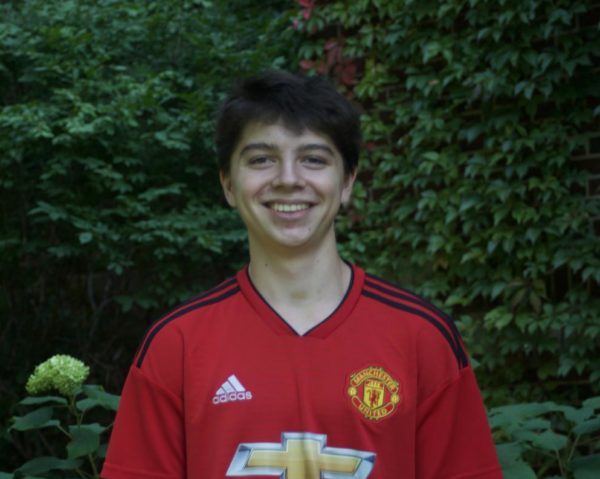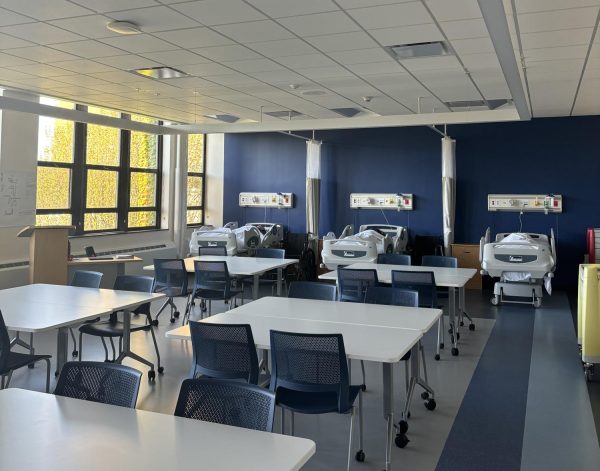Screening of ‘Raising the Floor’ provides insight into city-run guaranteed income plans
February 1, 2023
Northwestern University, in conjunction with the City of Evanston, held a screening of the film Raising the Floor at Kresge Hall on Tuesday, Jan. 31 from 6 to 8 p.m. Recently the City of Evanston implemented a pilot of a guaranteed income plan to provide impoverished families and individuals with the means they need to survive. The showing provided an opportunity for Evanston residents to learn about how similar initiatives have worked elsewhere. After viewing Raising the Floor and a nine-minute video about Richard Nixon’s momentary trifling with guaranteed income, titled Nixon’s Reversal, viewers were treated to an hour-long discussion between Northwestern professor Geraldo Cadava, Raising the Floor director Sabrina Avilés, research project manager Jeff Thomas and Evanston Mayor Daniel Biss.
“The film happened to be at a fortuitous time, we were bringing it in before we heard about the guaranteed income program in Evanston,” said Cadava, who helped to coordinate the screening. “[Avilés and I] met while she was making Raising the Floor. I knew it was something that we should show in Evanston. We got in touch with Mayor Biss and the rest is history.”
Raising the Floor is a film about the Chelsea Eats program, the largest basic income pilot in American history, with over 2,000 individuals receiving monthly payments of up to $400 with no strings attached. It documents the journey of the program from a makeshift food distribution center to an ambitious attempt at reducing poverty in Chelsea, Massachusetts.
“We wanted to show respect to the people of Chelsea. We wanted something with texture, movement and layers, and we got these beautiful animations for the documentary that show the struggle of many undocumented immigrants during the pandemic,” said Avilés.
The majority Latinx community that makes up Chelsea came together to feed neighbors and strangers during the early stages of the COVID-19 pandemic. What started as a simple food drive turned into something much bigger when the city realized how many people needed food. The National Guard was called in to help distribute food boxes to the 40,000-person population. When the chaos died down, the city took over the program.
When the city realized how much money was being spent on the program, they decided to transition to simply handing out money instead. The cost was the same for the city but participants in the program were now free to spend the money any way they wished. The first round of the program lasted nine months and it was a massive success. The city recently opened applications for a second round of the program, which will select another 2,000 residents to receive between $200 and $400 per month.
The success of the Chelsea Eats program sparked similar ventures in cities across the country, including in Chicago and Cook County. Evanston was another one of those cities. On Dec. 1, 2022, 150 Evanston residents received their first payment of $500 when the city’s version of the program launched with a budget of $1.1 million. Evanston invested $700,000 into the project while Northwestern contributed $400,000 from its budget. The payments are set to continue until Dec. 1 of this year. The pilot has not been simple though, as the program is as complex as the issue it is trying to solve.
“We’ve had some issues. We’re seeing things beforehand as best we could and tried our best but then things would come up. Once the applications opened, there was something about it published in I think an NPR news program,” said Thomas. “That day we noticed a lot of applications but it was a lot of applications from outside of Evanston. Still, though, that’s a good problem to have.”
Evanston residents needed to be at or below 250% of the federal poverty line and be between 18-24 years old, 62 and older or an undocumented community member to qualify for the payments.
“The undocumented thing was an issue,” said Biss. “In the community, we needed to get the word out from a trusted partner. You know, one of the most suspicious things we can say is, ‘Hey, I’m the government, please fill out this form and tell me you’re undocumented.’ So making sure that was delivered from a genuinely known, trusted source was critical.”
While the pilot still has ten more months to go until its conclusion, the results from the first two months have been enough for many to decide on the program’s efficacy.
“I personally have seen enough to not need our research to be complete and feel like it’s worth continuing,” said Biss. “It’s not as simple as just rolling this over. That’s going to be talked about in the latter part of the discussions, not this initial bit. However, I think [the payments] should and are going to continue.”


















